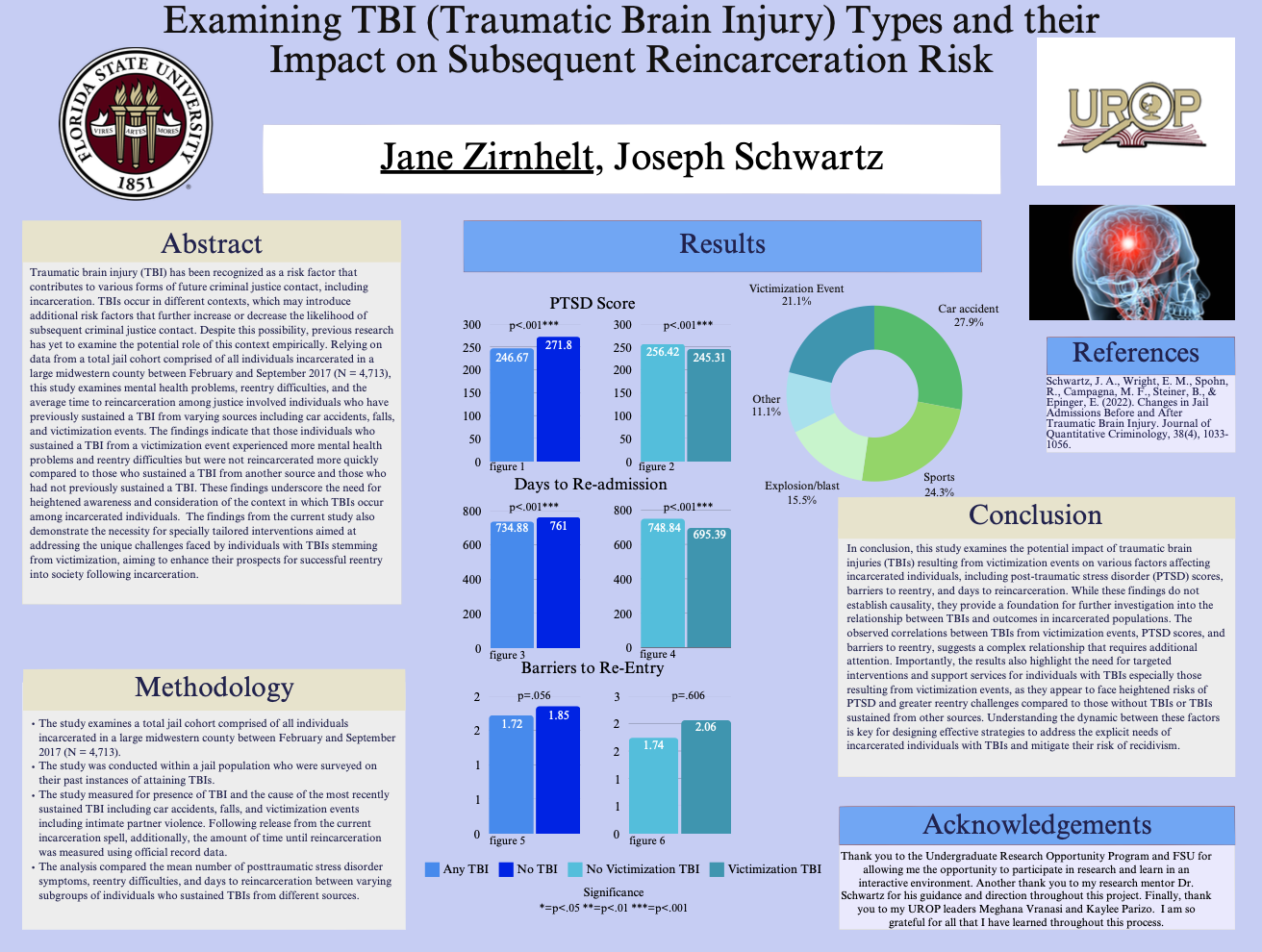Research Symposium
24th annual Undergraduate Research Symposium, April 3, 2024
jane zirnhelt Poster Session 3: 1:30 pm - 2:30 pm /213

BIO
Hello I am Jane Zirnhelt and I am a sophomore from Minneapolis, Minnesota studying criminology and business. Here at Florida State I am involved in the honors program, UROP, LAE, and intramural beach volleyball. I am interested in various topics within criminology and hope to one day work a job that focuses on sales, private security, and or criminology research. I am motivated by my desire to make my family proud and someday be able to travel the world.
Examining TBI (Traumatic Brain Injury) Types and their Impact on Subsequent Reincarceration Risk
Authors: jane zirnhelt, Joseph SchwartzStudent Major: criminology
Mentor: Joseph Schwartz
Mentor's Department: Criminology Mentor's College: College of Criminology and Criminal Justice Co-Presenters:
Abstract
Traumatic brain injury (TBI) has been recognized as a risk factor that contributes to various forms of future criminal justice contact, including incarceration. TBIs occur in different contexts, which may introduce additional risk factors that further increase or decrease the likelihood of subsequent criminal justice contact. Despite this possibility, previous research has yet to examine the potential role of this context empirically. Relying on data from a total jail cohort comprised of all individuals incarcerated in a large midwestern county between February and September 2017 (N = 4,713), this study examines mental health problems, reentry difficulties, and the average time to reincarceration among justice involved individuals who have previously sustained a TBI from varying sources including car accidents, falls, and victimization events. The findings indicate that those individuals who sustained a TBI from a victimization event experienced more mental health problems and reentry difficulties but were not reincarcerated more quickly compared to those who sustained a TBI from another source and those who had not previously sustained a TBI. These findings underscore the need for heightened awareness and consideration of the context in which TBIs occur among incarcerated individuals. The findings from the current study also demonstrate the necessity for specially tailored interventions aimed at addressing the unique challenges faced by individuals with TBIs stemming from victimization, aiming to enhance their prospects for successful reentry into society following incarceration.
Keywords: Traumatic Brain Injury, Incarceration, victimization

